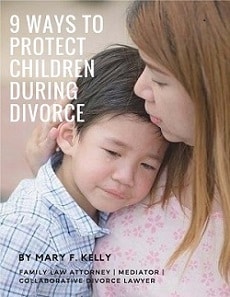When substance abuse leads to divorce
Seeing a family torn apart by a parent’s substance abuse is a difficult part of my family law practice. Substance abuse causes many marriages or relationships to end, and the circumstances can be bitter: an arrest or order of protection, a psychiatric stay, an incident in which the children’s safety is at risk, or the children witnessing harmful behavior, like buying or using drugs. Often, one party has committed an egregious wrong; the other is outraged, angry, and hurt. One party may temporarily vanish; the other is now the sole custodian of the children.
When a divorce action is started, the court’s primary focus is protecting the children and the other spouse from neglect or harm. The court may not allow the substance abuser party any visitation with the children until certain conditions are met—sobriety, at the least. When that party is allowed visitation, it will be supervised.
Supervised visitation with your children
Supervised visitation is just that—visitation with a supervisor in the room. Depending on the circumstances, a family member may be designated the supervisor, with the visits at his or her home, or a mental health professional will supervise the visits at a neutral location. If you are the substance abuser and you fail drug and alcohol testing or do not regularly attend your treatment program, you will be denied visitation altogether until you comply. In the eyes of the court, a party abusing drugs or alcohol is unfit and unable to care for his or her children. The bottom line is that you spend little—if any—time with your children.
Supervised visitation is usually ordered for twelve months or more, and there is a high bar for resuming unsupervised visitation. A forensic expert appointed by the court will monitor your progress, getting reports from your treatment program and the results of frequent drug and alcohol tests. You will need to complete treatment, prove that you have been sober for several months, undergo continued drug testing (including random testing), and perhaps attend a 12-step group.
Complying with the visitation order
If you have supervised visitation due to substance abuse, the best thing to do is abide by all of the rules the court establishes. Be on time for visitation appointments, and do not cancel them; children should have a consistent schedule and be clear when the next visit will be. Follow your treatment plan, stay sober and take the drug tests. If, after a designated time set by the court, you can show that you have complied with the court’s order and are no longer abusing, the court may shorten the length of time your visits must be supervised, or decide to vacate the order for supervised visitation and allow unsupervised visitation with your children. It is a long road, but if you can be patient and stay sober, you can look forward to a good outcome for you and your children.
Copyright (c) 2015 Kelly & Knaplund




